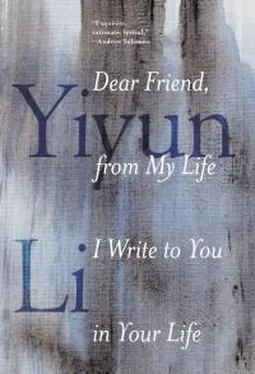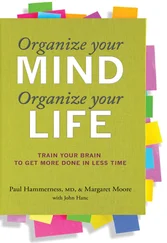In a letter to her friend William Carlos Williams, which I reread often, Moore wrote:
The fact is, I must admit, that we usually exemplify—in some measure—the faults against which we inveigh. I am prone to excess, in art as in life, so that I resist anything which implies that the line of least resistance is normal….
Make allowance, William, and muster charity. But no charity is needed so far as friendship is concerned, for friendship is my phobia. It is after all, loyalty which makes one resistful?
The letter says exactly what I am incapable of putting into words. To hear Moore say that she’s prone to excess is not unlike reading young Turgenev’s lament over being an old man before his time. Such absoluteness could be mistaken for affectation, but there are people who can survive only by going to the extreme.
A writer can deny she is autobiographical. But what is revealed and what is concealed expose equally. In that sense Moore, a master at withholding, is a highly autobiographical poet. I wonder how she would react to such an assessment. Were I told such a thing, I would recoil; I would put every word I have written up for examination to prove I have let nothing from my life slip through the cracks. Once—of all places in Beijing—a woman asked at an event if I was an autobiographical writer. No, I said, absolutely not. But your father is a nuclear physicist, she said, and in your collection at least two fathers worked in the nuclear industry. A coincidence, I tried to explain, does not mean a real connection, though my effort to disconnect writing from life, I now understand, is not different from Moore’s excess. One writes about what haunts one. Thus looked at, no one is exempt from being autobiographical.
“I would have died long since if I did not excel at defaulting.” Defaulting to what, Moore never said. Even when she did not refrain from talking about herself, it was abstract. If there is no proof of the existence of secrets, one is spared the fate of having two lives:
one, open, seen and known by all who cared to know, full of relative truth and of relative falsehood, exactly like the lives of his friends and acquaintances; and another life running its course in secret. And through some strange, perhaps accidental, conjunction of circumstances, everything that was essential, of interest and of value to him, everything in which he was sincere and did not deceive himself, everything that made the kernel of his life, was hidden from other people. (Chekhov)
Marianne Moore reminds me of what I could have become.
—
OTHER THAN COLLEGE, Moore did not live apart from her mother until her death. When they first moved to New York City, a neighbor gave them a kitten, and they named him Buffalo. “Buffalo is developing and is cuter and cuter,” Moore, deeply attached to the kitten, wrote to her brother. The next day, when she was at her library job, her mother killed Buffalo. “Mole [Moore’s mother] got chloroform and a little box and prepared everything and did it while I was at the library on Monday….And nothing could have been more exact….But it’s a knife in my heart, he was so affecting and scrupulous in his little scratchings and his attention to our requirements of him.” Still, Moore could not but defend her mother. “It would have been cruel to him to let him grow and might have…seemed like murder to him if we had kept him and turned him over to strangers.”
Together the mother and daughter let the Hudson River take the body away, and for a few years after they avoided the pier. The menacing logic by which Moore’s mother functioned is familiar. When my sister started working after college, she gave me a pair of hamsters as a present. I became fond of them, and soon after they disappeared. I gave them away, my mother said; look how obsessed you are with them. You can’t even show the same devotion to your parents.
Moore and her brother treated their mother as a child. I had known, long before I could put that thought into words, that the only child in our family was my mother. More than her rage I feared her tears.
My mother is a child I had to leave behind so as to have my own life. I admire Marianne Moore’s brother. But sometimes action is propelled by hope that is only a wish; action does not absolve one’s sin, action itself is the sin.
I remember those late winter evenings, after I served as the librarian’s assistant, walking to the bus stop. Between the campus and the stop was a long avenue, unlit but for one lamp at each end. The campus was empty. The Old Summer Palace, in those days, was a deserted place even during the daytime. The poplars flanking the avenue were black against the dusky sky, and the crows circled the treetop in their loud cacophony. Beyond the poplars were two narrow ponds. The lotus that had blossomed pink and white in the summer lay withered on the water’s surface; nothing, I have always had the misimpression since then, can look deader than lotus in winter.
I would listen to my footsteps and recite Turgenev’s words in my head, certain about one thing in that bleak moment. My father had told me, when I was five, that a person was in danger only when another person was around. When nobody was near me, I was safe; I could even imagine a different life. What I feared was arriving home. Too often my mother would be screaming at my sister; too often my mother would be crying because she was hurt by my father’s defense of my sister. To be assigned as the one to smooth over her mood, to appease her anger, to bring her back to her childlike cheerful self so we could all breathe again—dreadful as it was, it was not the worst. This, I will tell you, was the worst—I shivered when I read that Moore’s mother scrutinized not only everything Moore wrote, but her physical change day by day—too often my mother would question, with omniscient suspicion, if any man on the bus had touched me inappropriately. How could she not understand that I was made invisible by having been old already, too old for those men lurking in the dark?
—
“WE WRITE TO narrate, not to prove,” Turgenev advised a young writer in a letter. I wish I had learned that earlier, though to prove, even as a failed effort, brings the relief of certainty, and what brings relief can become a habit, an addiction. The things I had wanted to prove were ambitious, even inhuman: to be free from all that haunts one, and to keep a distance so as never to haunt others.
I wonder if Moore wrote and lived to prove, and what she intended to prove, and to whom, and for what reason. Reading her makes me feel resentful: in her I see the self I wanted.
Turgenev was not afraid of showing his melodramatic nature (which must have matched his mother’s—this possibility always disturbs me). Moore, whose melodrama was internalized to the point of annihilation, gave access to only one witness—herself. Unlike Turgenev, whom I now feel ready to leave on my bookshelf with other writers, Moore will haunt me for a long time—is it from understanding too little, or too much?
In never leaving home, Moore found a shortcut in suffering, and she suffered impeccably. “Writing, to me, is entrapped conversation,” she wrote to Ezra Pound when he was in St. Elizabeths Hospital. I resent her for living an unhaunted life. I envy her for her entrapment. I can find no selfishness in her but her selfless art: sane, elegant, uncharitable.
Amongst Characters
I called my mother the other day and she reported that she was reading an old journal of mine. At that very moment. I changed the subject only to be guided back. She wanted to start keeping a journal and, looking for a suitable notebook, found one nearly unused, with only a few entries at the beginning. Written right after you left the army, she said. No, you don’t have to read it to me, I said when she described the first entry. The paranoia I felt then is the same fear that has always been with me. Anyone reading one’s words is able to take something from one. Had I been more disciplined I would have written nothing and lost nothing.
Читать дальше












